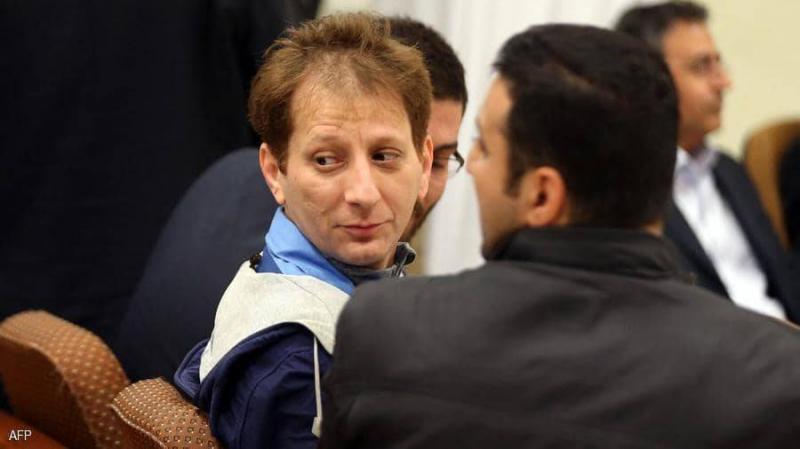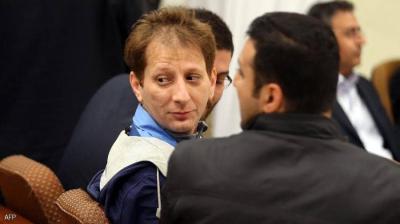Under the title "To Avoid Execution.. Iran Demands Businessman Pay Nearly $4 Billion," Sky News reported that after years of signals and delays, the Iranian judiciary explicitly announced that paying a sum of $3.5 billion by businessman and billionaire Babak Zanjani could save him from the gallows, according to statements from the head of the Iranian Supreme Court, Morteza Habashi. Habashi justified this bargaining, saying, "Some matters must be taken into consideration for the benefit of the country," which led Iranian commentators to question whether Babak Zanjani is truly guilty of a criminal act or merely a hostage taken by the Iranian judiciary, which demands a ransom for his release.
This "ransom" of $3.5 billion represents the total amount that the Iranian judiciary claims was embezzled by Zanjani, in addition to profits due to delayed payments over the years. Zanjani is one of the richest and most famous Iranian businessmen, rising to prominence during the second term of former president Mahmoud Ahmadinejad (2009-2013). When international sanctions targeted the Iranian regime due to the Iranian nuclear file, particularly in the oil sector, Zanjani operated and created a complex network of trading companies and financial institutions across the world to sell Iranian oil away from the sanctions, with the partnership and consent of Iranian authorities.
Financial data indicated that Zanjani's financial networks succeeded in generating over $50 billion in revenues for the Iranian government during the four years of Ahmadinejad's second term. In return, he amassed a personal fortune estimated at about $10 billion by global financial rankings. However, media outlets close to Zanjani claim that much of his personal wealth came from a vast array of investments carried out by his financial group in various sectors such as general trade, petrochemicals, aviation, tourism, and electronics, stating that his gains from Iranian oil trade were "ordinary and close to what oil mediators typically achieve in various transactions and countries."
Iranian authorities issued an arrest warrant for Zanjani in 2013, just weeks after Ahmadinejad's presidency ended, and arrested him that December. After nearly three years of trial, the "Revolutionary Court" in Tehran sentenced him to death by hanging after convicting him of "embezzlement and spreading corruption on earth."
Iranian human rights activist Pirooz Shamarani explained in an interview with Sky News Arabic the motivations that led the Iranian regime to arrest and convict Zanjani. He pointed out that the verdict "came despite the close partnership between Zanjani and the pillars of the regime in Iran, but the internal power struggle within the Iranian system pushed the presidency under Hassan Rouhani to present Zanjani as a sacrifice for what was considered its reformist phase, especially since Zanjani had faced sanctions from the European Union in late 2012 and from the U.S. Treasury in early 2013." He added: "Therefore, Zanjani's arrest was akin to a reckoning of Rouhani's era with Ahmadinejad's. By the end of his rule, Rouhani's close circle wanted to emerge with a deal they consider profitable."
Moreover, Iranian observers and commentators doubted the credibility of the Iranian authorities’ willingness to release Zanjani, even if he paid the demanded amount. However, Zanjani's chief lawyer, Rasoul Koohiyazadeh, expressed confidence in the intended bargain, as his client "has relinquished all his financial assets in favor of the National Iranian Oil Company and is working to recover the remaining amount through his international financial and commercial companies."
The scarce information on Zanjani's total wealth suggests it ranges from $12 to $15 billion, despite his young age at the time of his arrest (only forty years old). Many Iranian citizens and a wide range of observers consider him one of the "newly rich" who suddenly emerged in the Iranian landscape after 2005, following Ahmadinejad's presidency, as the country faced a surge of international sanctions that drove the regime to partner with a number of private businessmen to circumvent these sanctions.
Iranian economic researcher Motawakil Ibrahim Khan discussed in remarks to Sky News Arabic the mechanisms employed by the Iranian regime with these newly rich individuals to reclaim what they consider "their private funds." He noted, "The execution of the well-known businessman Mahfrid Amir Khosravi by the Iranian regime in the spring of 2014 was a significant event that launched the regime's campaign against this class of businessmen, whose total wealth is estimated by Iranian authorities at over $200 billion, distributed among more than 400 businessmen." He added, "The Iranian judiciary uses a very harsh court, the Revolutionary Court, which was primarily tasked with dealing with political opponents and eliminating them. Moreover, it employs an accusation that is impossible to refute or dismiss (spreading corruption on earth), thus the judiciary acts merely as a tool to implement the premeditated will and decisions of the Iranian regime."




